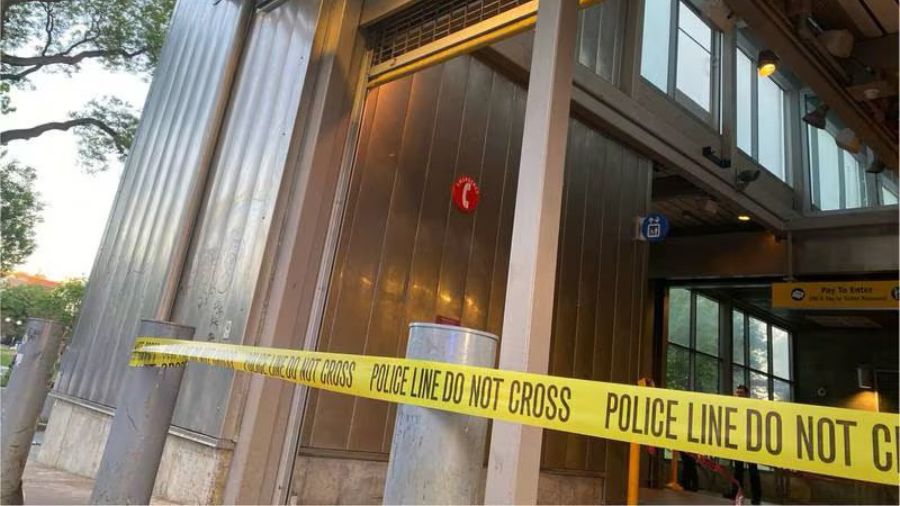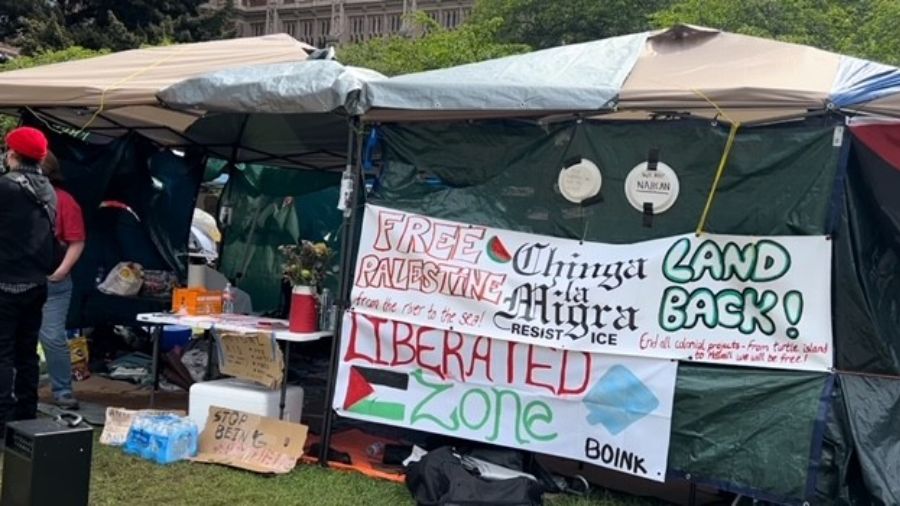Mayor Harrell announces ‘hot spot’ patrol crime initiative, push to rewrite local gun laws
Feb 7, 2022, 5:09 AM | Updated: 12:54 pm

Seattle Mayor Bruce Harrell. (Seattle Channel)
(Seattle Channel)
Following the release of a Seattle Police Department 2021 crime report which outlined that violent crime has reached a 14-year high in the city, Seattle Mayor Bruce Harrell and Interim Police Chief Adrian Diaz announced Friday their commitment to “resetting community norms” by targeting specific areas of the city with disproportionate crime rates, as well as lobbying Washington state to exempt the city from firearms preemption laws.
Violent crimes in Seattle reach ‘14-year high’ in 2021, according to report from SPD
“I have directed Chief Diaz to focus his efforts on those places in our City where crime is concentrated, disrupting the lives of the people who live and work there,” Mayor Harrell said Friday.
“I’m committed to ensuring we’re driving down our 911 response times, addressing our overall crime issues, and stepping up our gun violence response throughout the entire city,” Chief Diaz added. “We will continue to work with our community partners to prevent crime in neighborhoods. We’re deploying all resources to hot spots including patrol, community response, and detectives to address and drive down crime.”
Little Saigon has become a touchstone for community organizers and lawmakers for the state of crime in the city. The intersection of 12th Avenue and South Jackson Street is a reflexive example of why the city needs to reform its crime response, and it was a common thread Friday as Mayor Harrell and Chief Diaz clarified what “hot spot” patrols will look like moving forward.
“We have another set of hot spots that we’re looking at, 12th and Jackson being one of them, where we’re deploying our levels of resources throughout, not just all of our patrol resources, but our community response resources, our detectives and others to actually address and drive down the crime,” Diaz said.
In October, near that intersection, was the site of recently filed charges, including first-degree assault, motor vehicle theft, and unlawful possession of a firearm. That stretch of Little Saigon was referred to as an “open air drug market” by Harrell on Friday in description of how the city plans to meet standards for arrest under the consent decree — a point of tension in 2022 as SPD concludes a series of “Community Engagement Sessions” and begins formal, final review of the decree.
“There could be someone snatching a purse, there could be an open air drug dealing exchange, these kinds of valid arrests,” Harrell added. “There’s, for example, on 12th and Jackson, there’s sex trafficking. There’s fencing of stolen goods, and in those situations, … while you and I may assume that it’s stolen, we don’t know if it’s stolen. So that would be a situation where there’s some level of intelligence you have to gather.”
Harrell declined to specify which neighborhoods would receive special attention beyond Little Saigon, or how his idea of “hot spot” patrols would differentiate themselves from “emphasis patrols” — begun in 2019 under former Mayor Jenny Durkan’s administration, a process which allows community groups to contract SPD overtime shifts to provide additional security support.
Downtown Seattle group spends $564,000 on private security, more to come for 3rd Avenue
“I think that anyone that’s been around Seattle knows that we have some very troubled areas. … These are what I will call valid police strategies,” Harrell said. “And I think it’s just a little inappropriate to start naming intersections at this point.”
The mayor implied that he is leaving that information deliberately opaque to satisfy a “surprise element of policing,” and that his strategy is predicated on Mark Kleiman’s 2010 book, “When Brute Force Fails: How to Have Less Crime and Less Punishment.”
“I’m very cognizant of working with defense lawyers,” he said. “In criminology work, there’s a part of a surprise element often, there’s often a part where you are resetting community norms. Director of Strategic Initiatives Tim Burgess just gave me a book many years ago that I read: ‘When Brute Force Fails.’”
“And in that strategy, it talks about how you announce what you’re trying to do, you even let the criminals know, you let the defense bar know,” he continued. “You let the city know we’re cleaning out certain areas. And so we’re going to employ some of the tactics in that book that we think make a lot of sense.”
A subsequent strategy outlined by Harrell and his team included an emphasis on violent crime in the city, specifically calling out RCW 9.41.290, which broadly supersedes municipal authority to draft its own firearm policy in Washington state.
“We have too many guns poured into cities and into our country,” Harrell continued. “And you will hear, this year, me lead efforts on trying to get relief from the exemption our RCW 9.41.290.”
“We are one of the few states that has that kind of restriction, allowing the state to govern the laws we need for our city of Seattle. My proposition is that every city should be able to look at that space. Because I know what kinds of things I’d like to be able to do if I had that flexibility as a mayor and our city council had the flexibility as a legislative body,” he added. “So you’re going to hear, in addition to short term strategies and short term investments, how we can get out from under that law.”
A common refrain sung about Seattle’s crime problem is that the city council encouraged early officer attrition with “defund the police” language used around the summer of 2020. In a written statement, Councilmember Lisa Herbold, public safety chair, clarified that SPD’s staffing plan has been fully funded for this year which budgets for 125 additional officers.
Voices behind Compassion Seattle, ‘Seattle is Dying’ series score new roles in city hall
“I applaud Mayor Harrell’s attention to public safety in Seattle and calling for a multilayered approach to address the challenges we face,” Herbold wrote in a news release.
“The full year data in the 2021 Year-End Crime Report confirms trends, that crime increased in 2021. The number of shots fired increased as well. With fewer sworn officers, we need comprehensive approaches that blend both traditional public safety and innovative community safety approaches. The Council approved funding for both approaches in 2022.”












